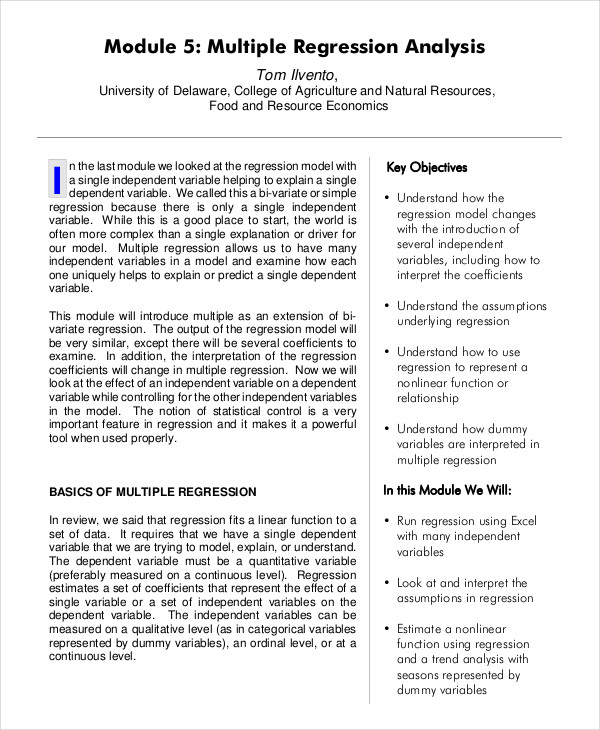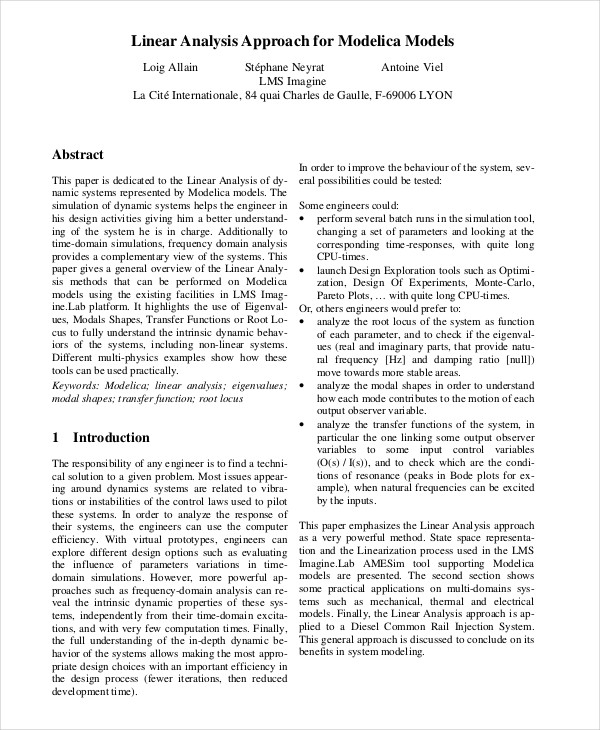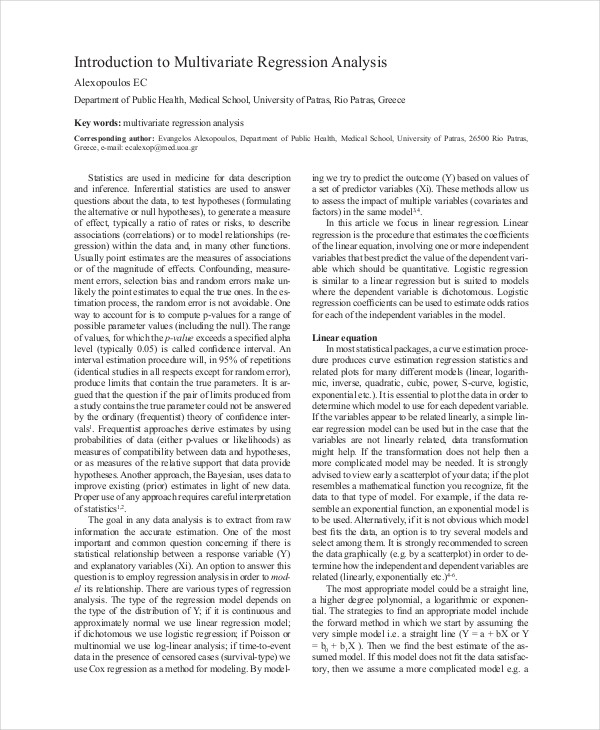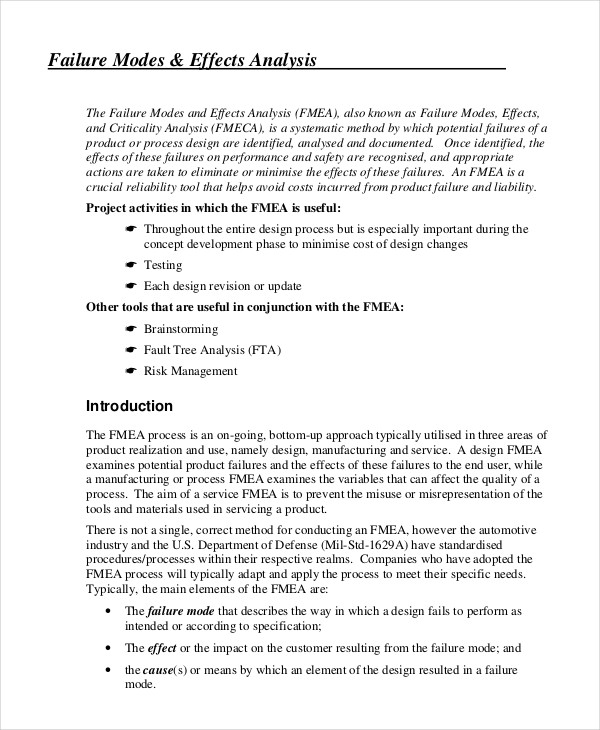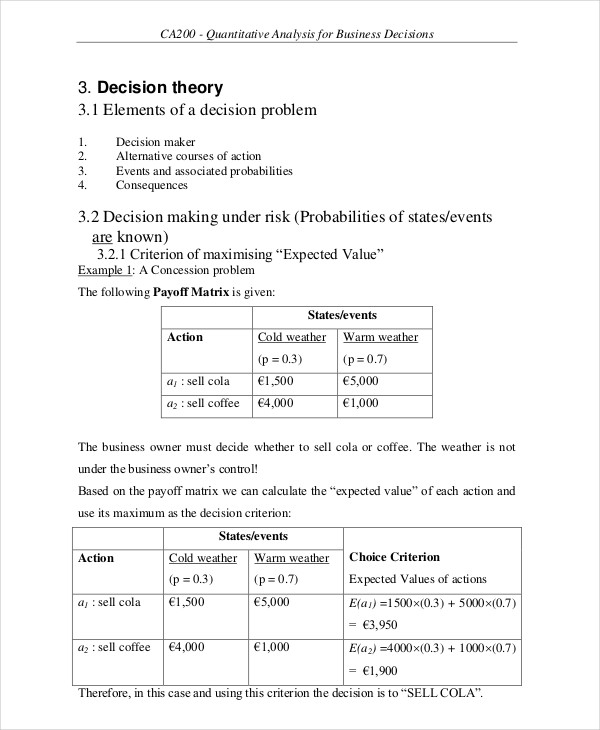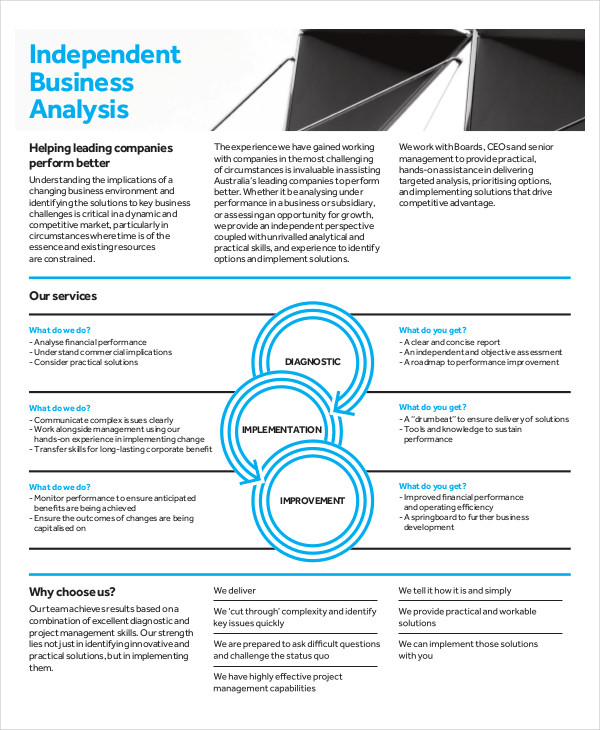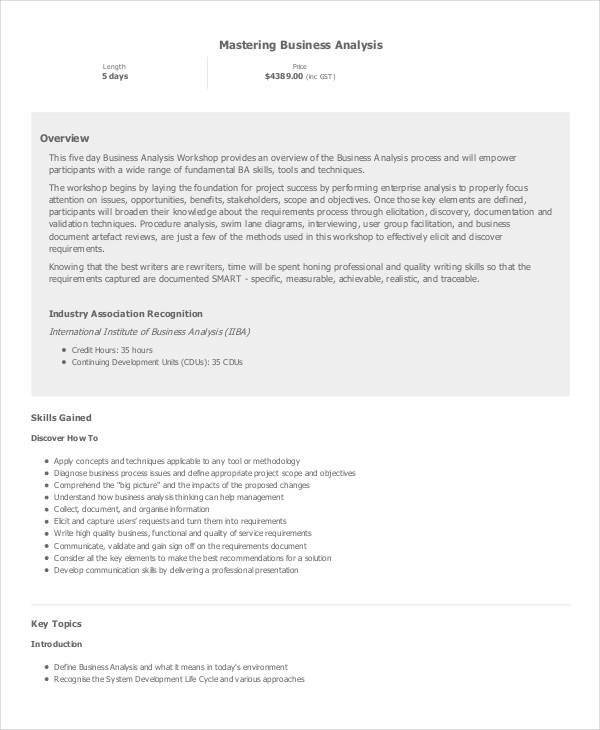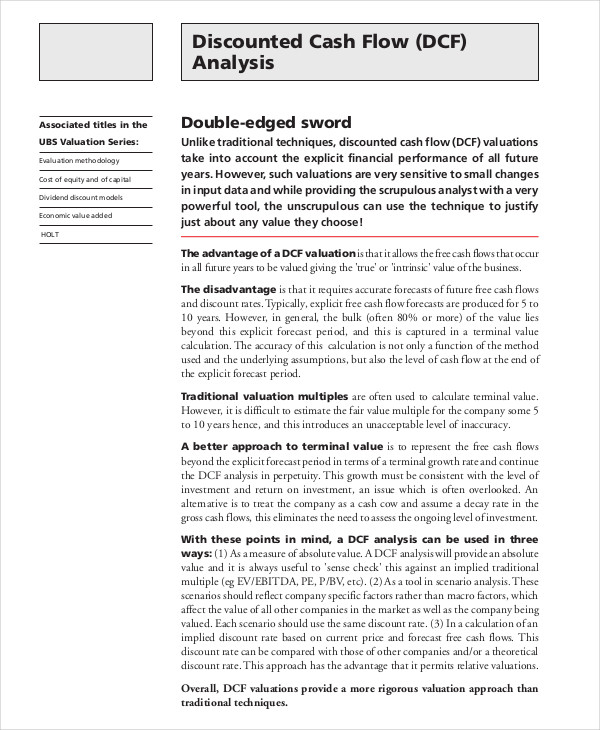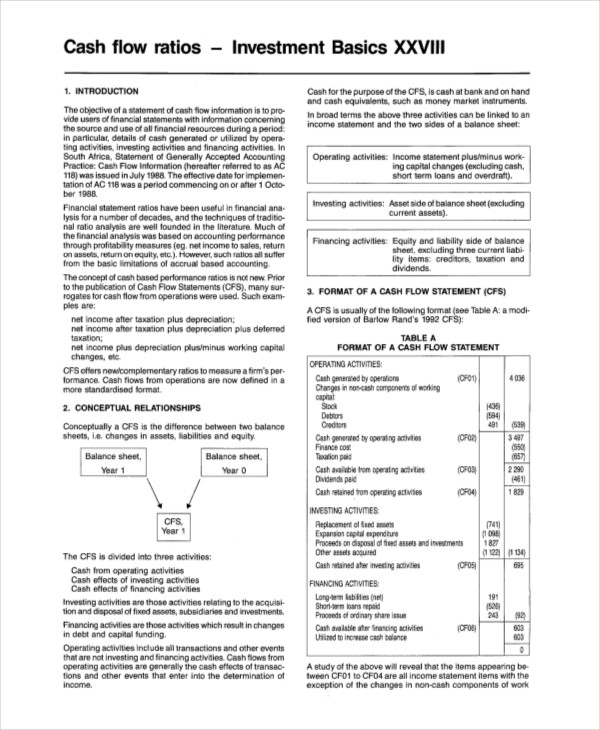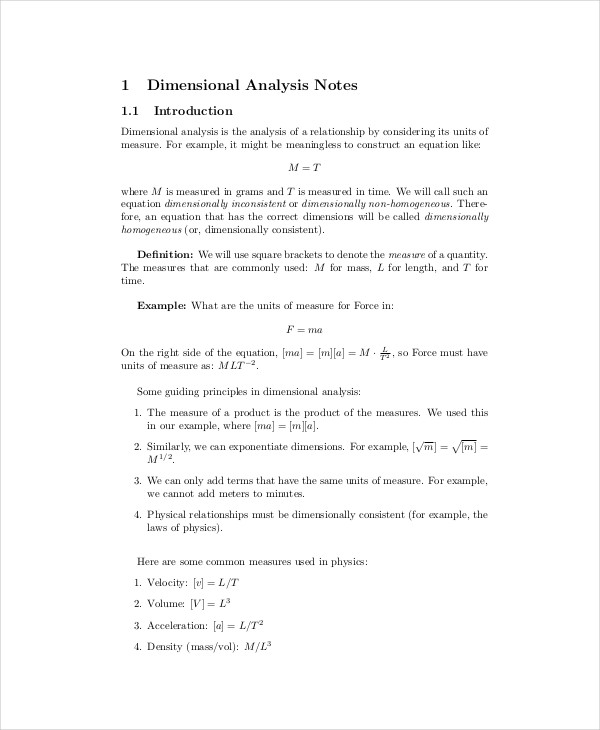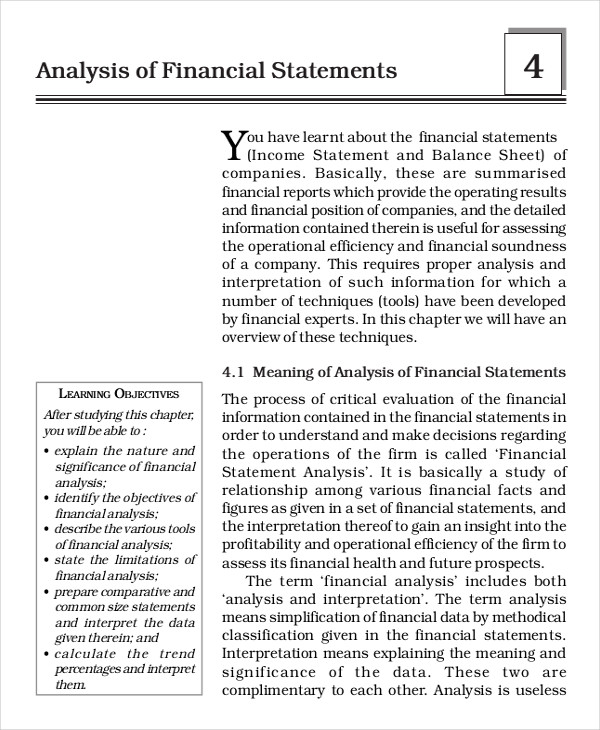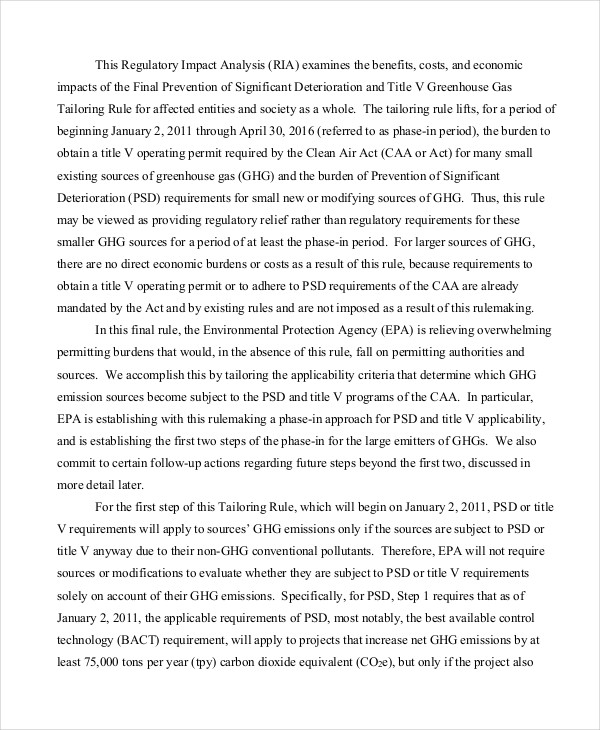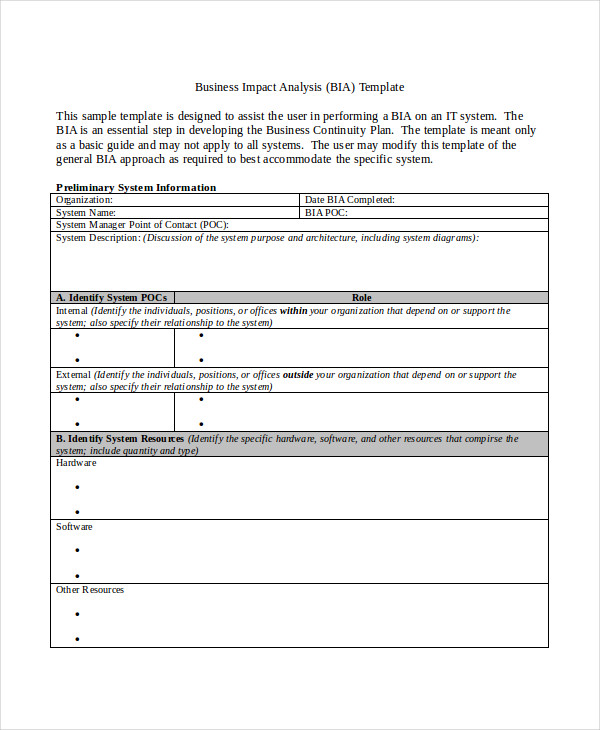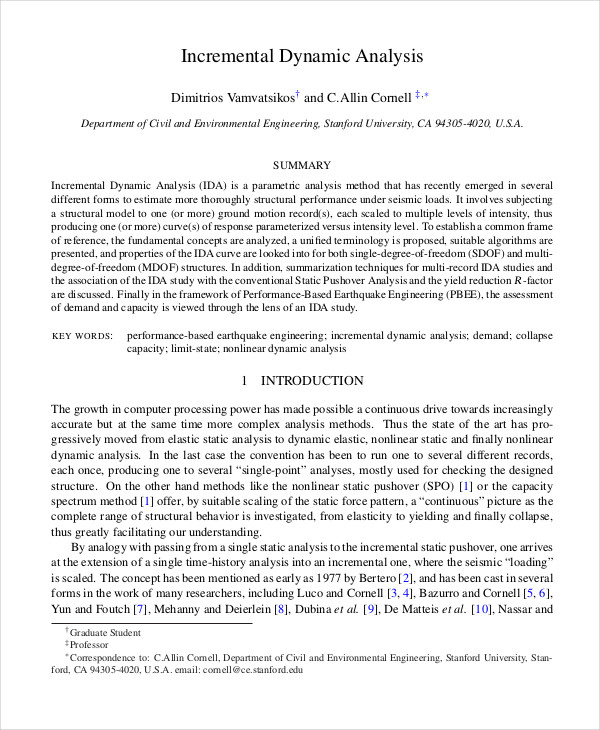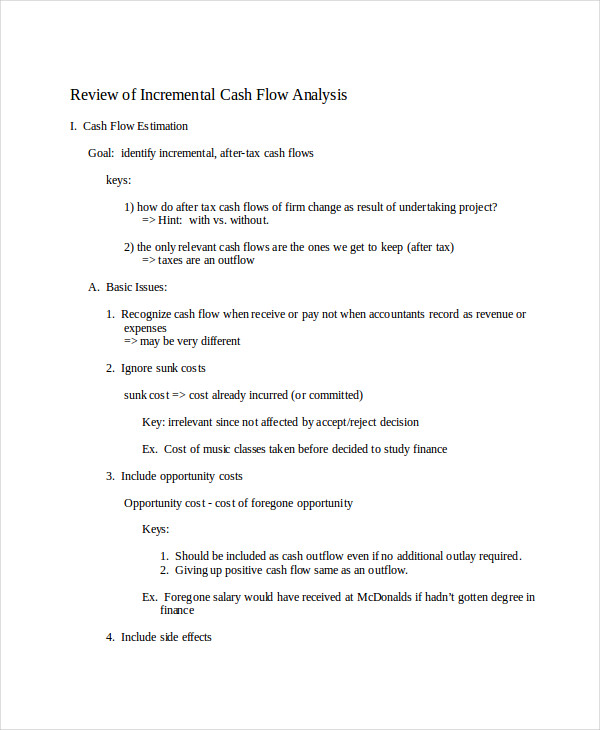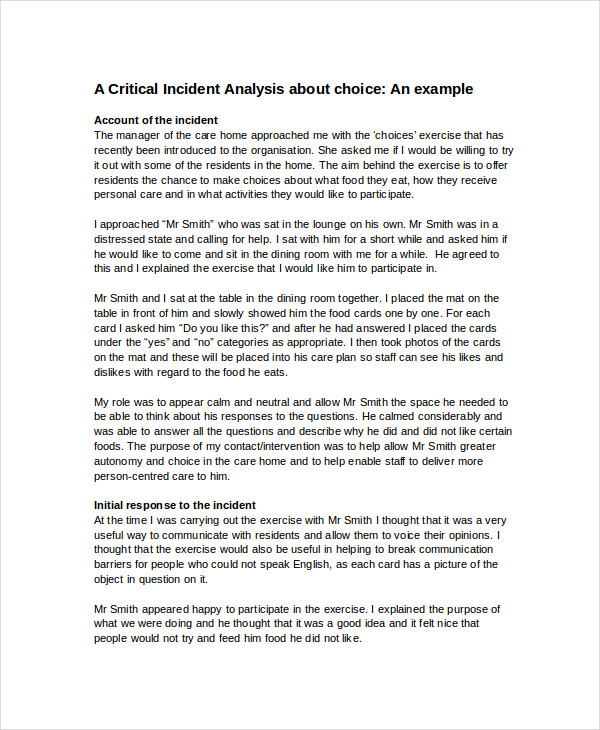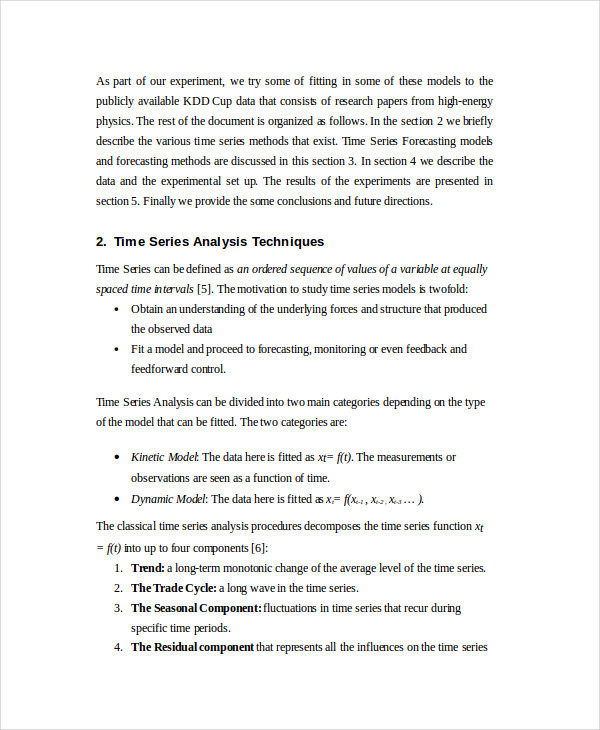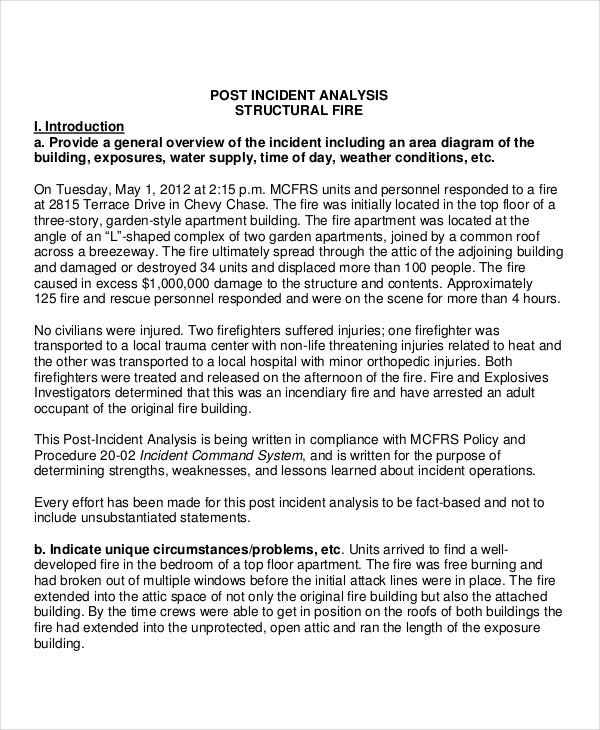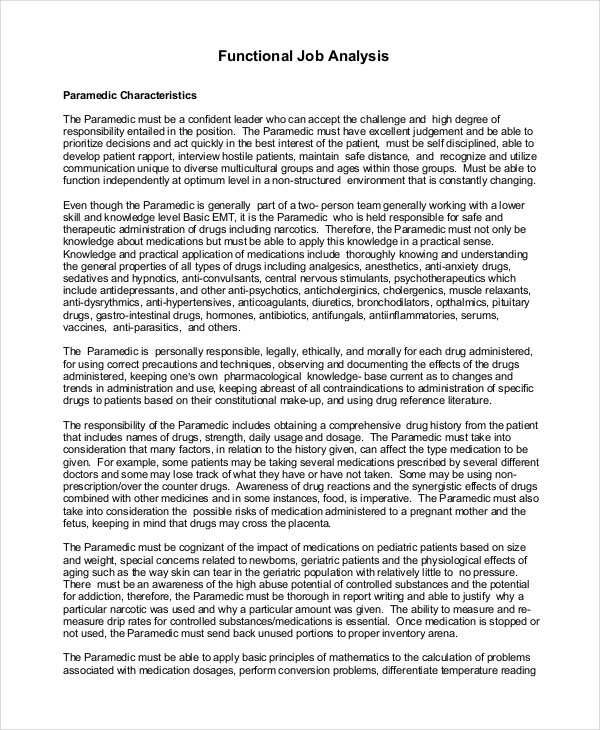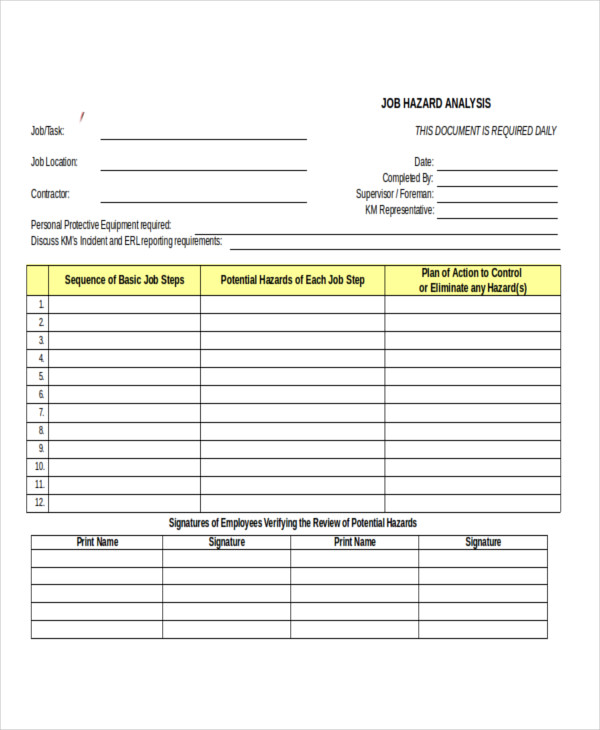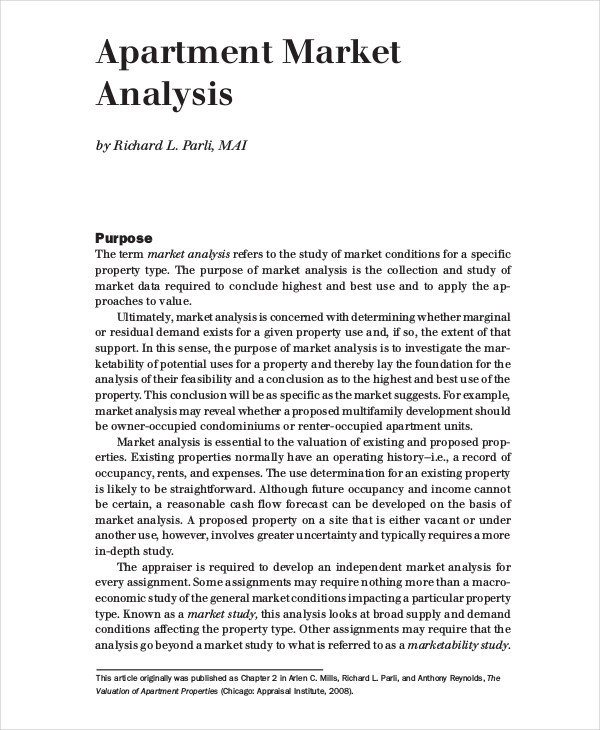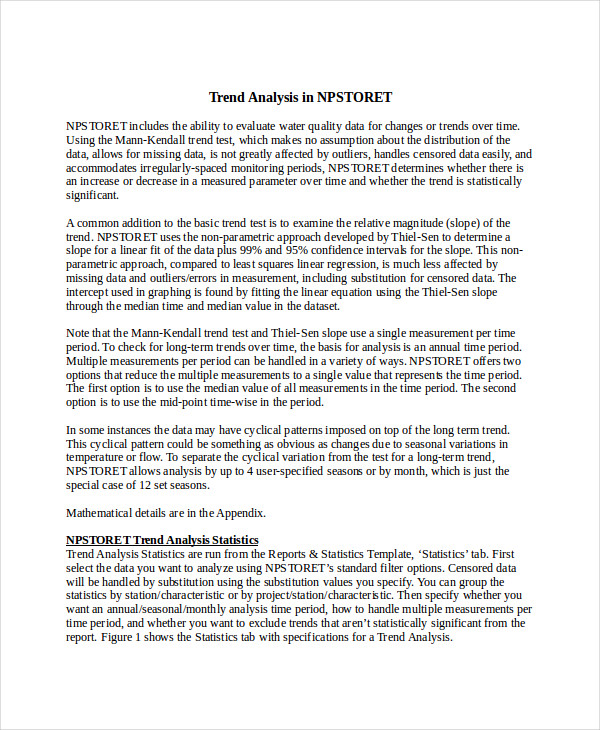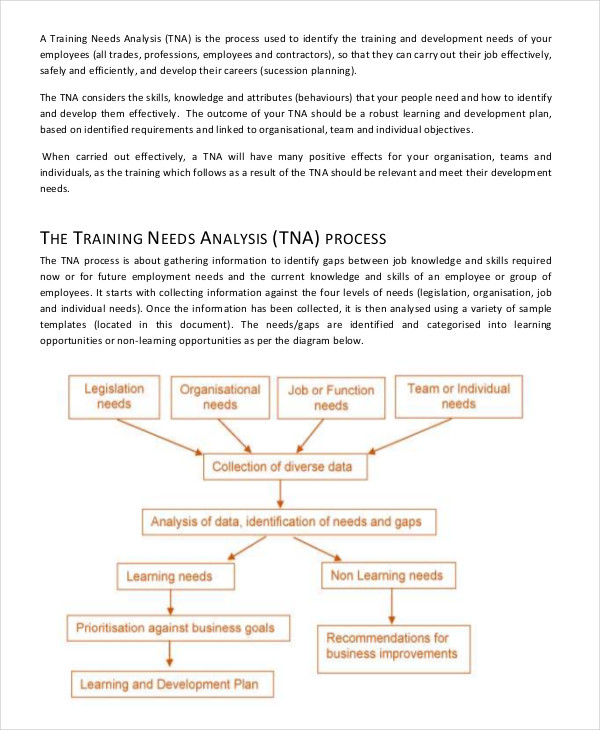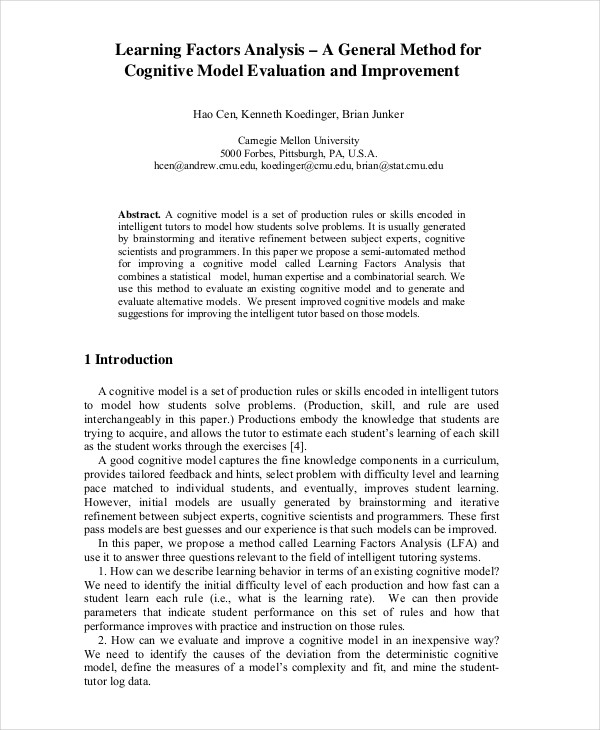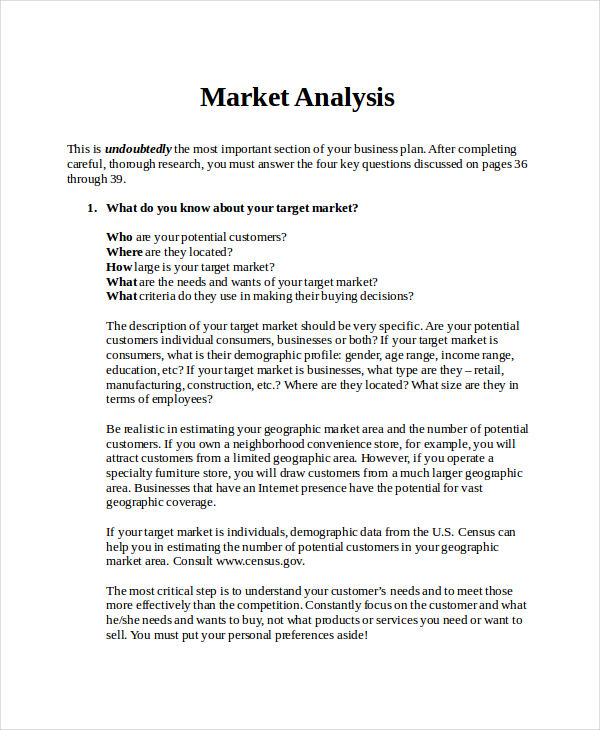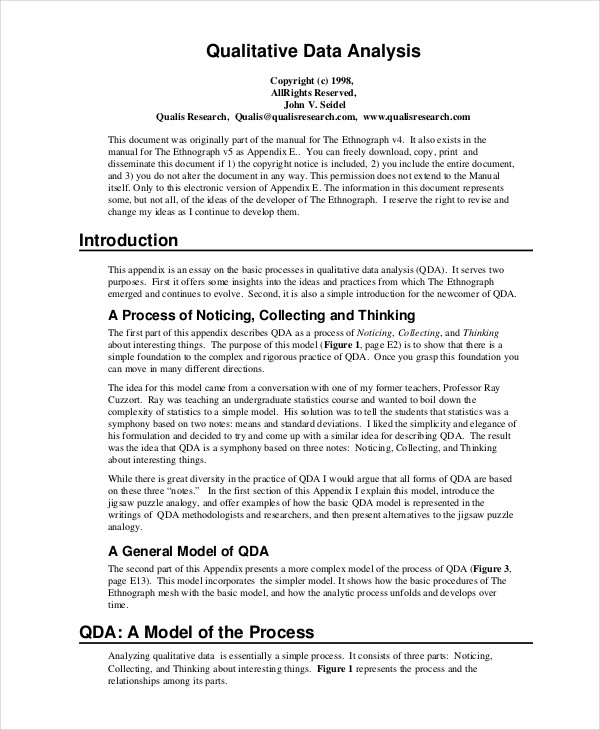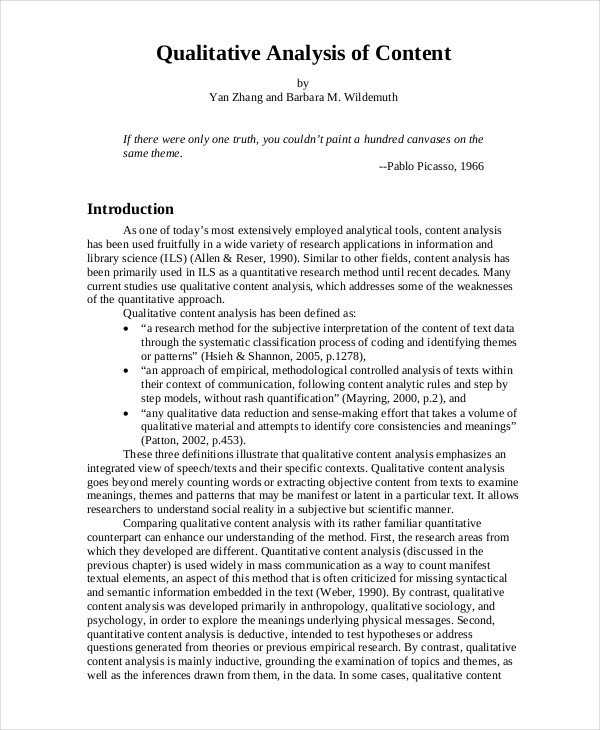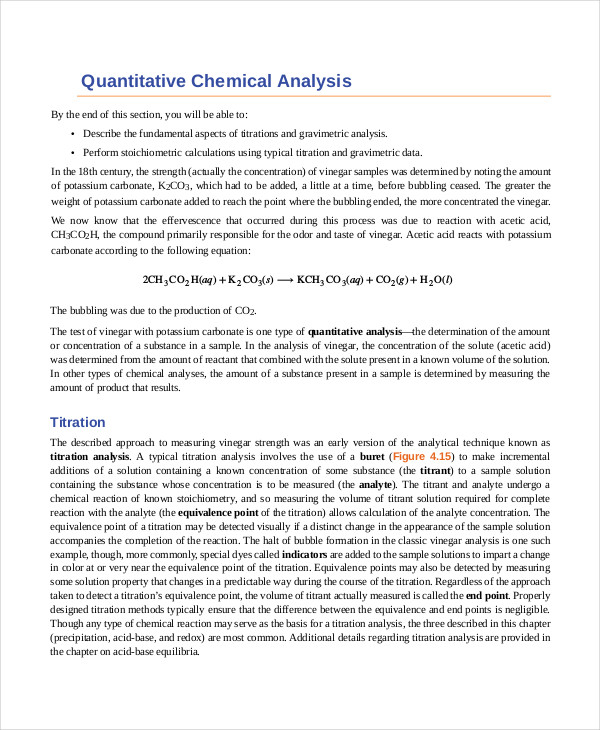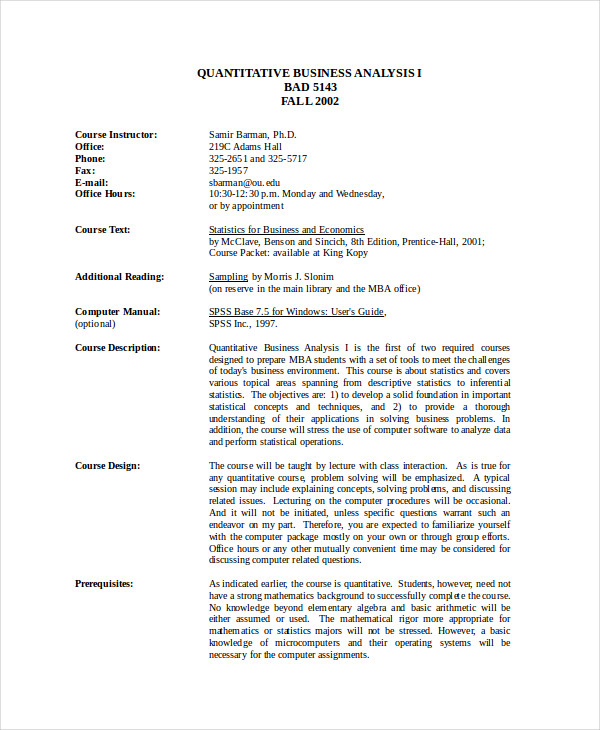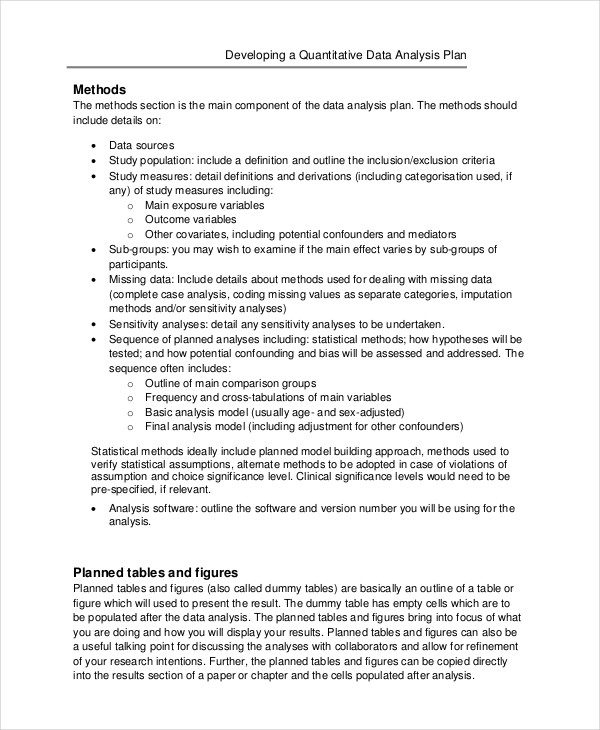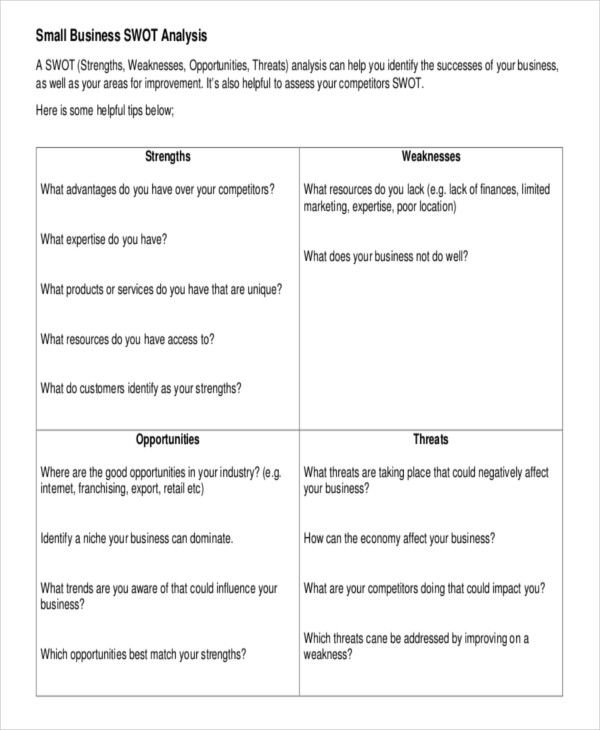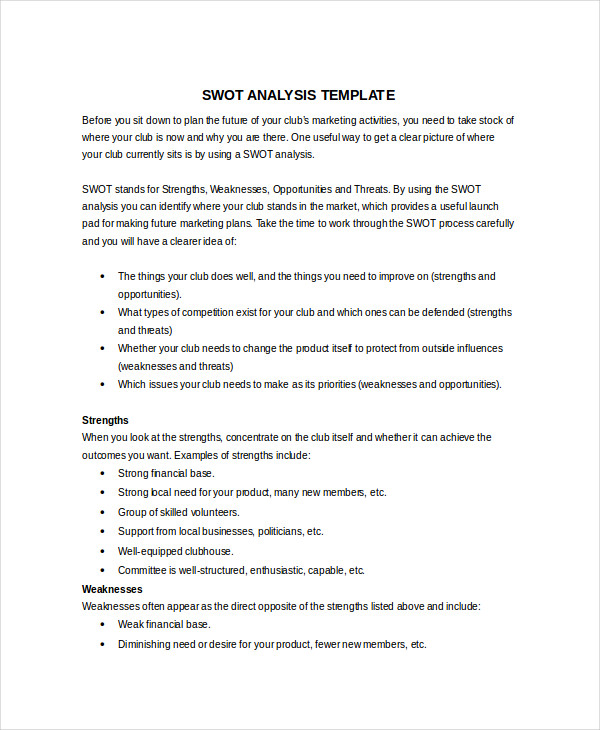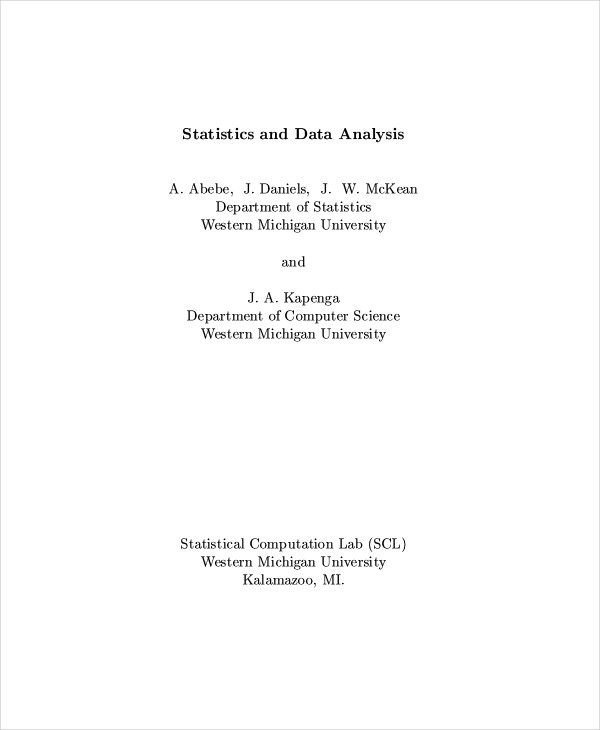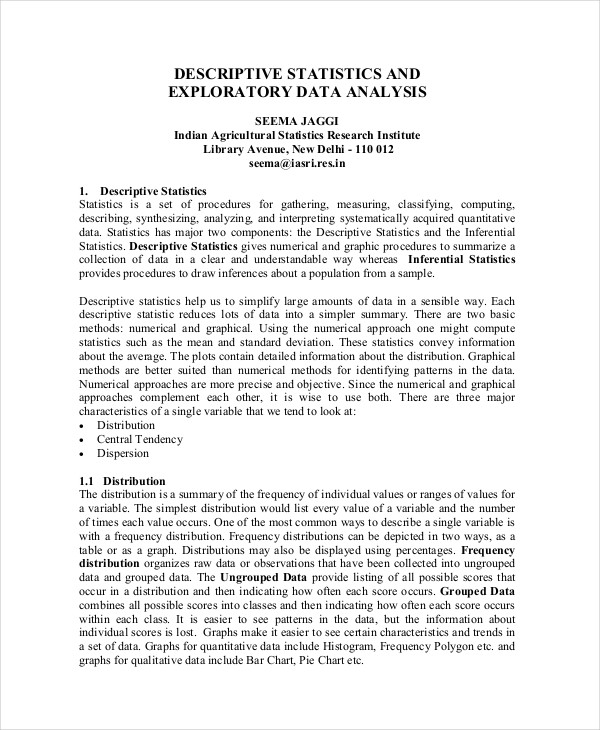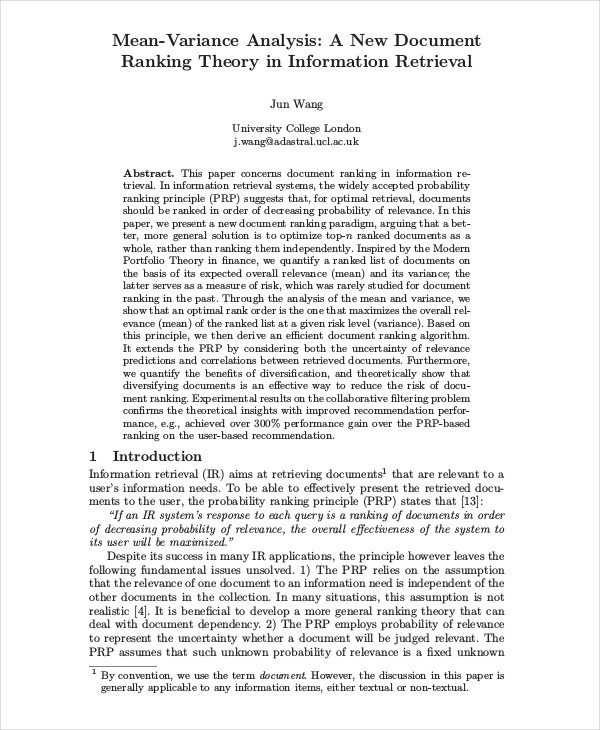45+ Simple Analysis Examples to Download
Analysis in business and other applications can be quite useful specially for those starting up or just beginning a new venture. Understanding something or the conditions that surround anything aids an individual in its strategic planning and preparation for that particular event or undertaking.
The trend market analysis sample on the page shows an example of such an analysis used in business. Other examples on this page feature different technical analysis sample applications. All of them are available for download by clicking on the download link button below the example. Just click on the sample of your choice to access the file that you are looking for.
Variance Analysis Template
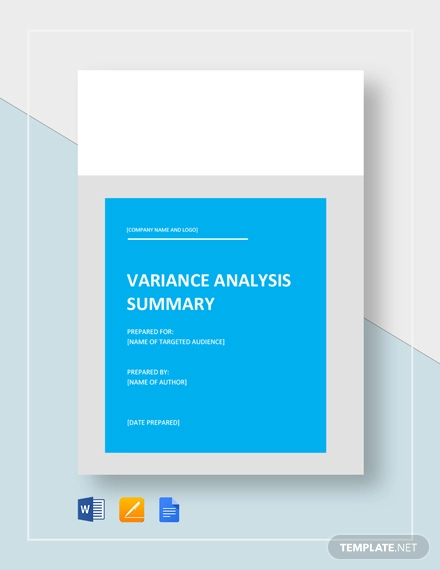
Worksheet Demographic Analysis Example
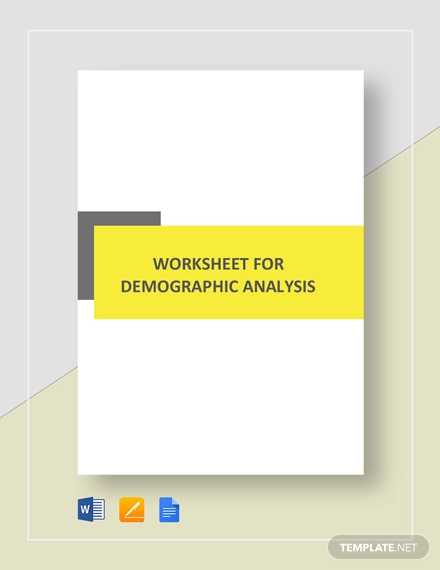
Workload Analysis Template
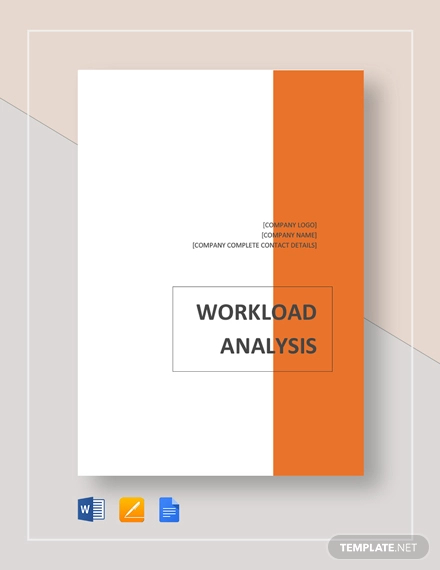
Checklist Manufacturer Analysis Example
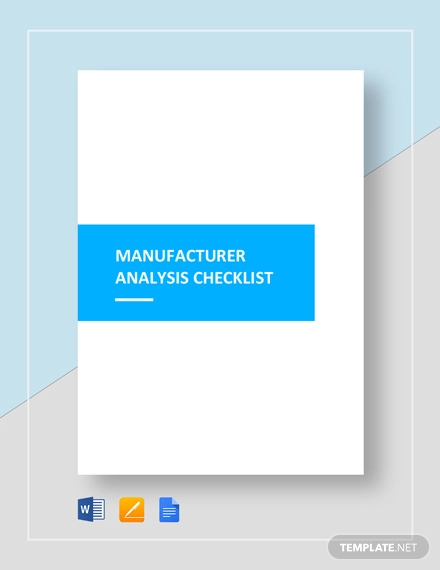
Capabilities Analysis Example
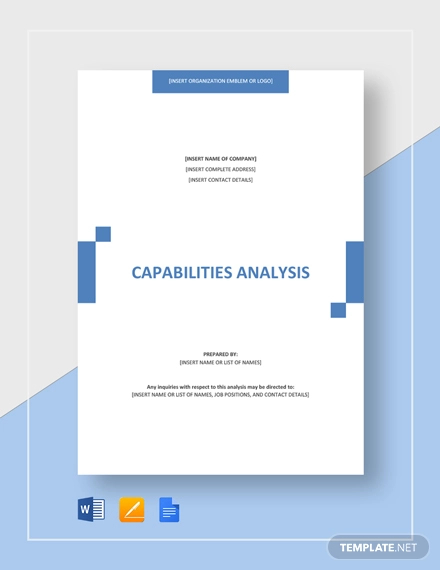
Restaurant Break-Even Analysis Spreadsheet Example
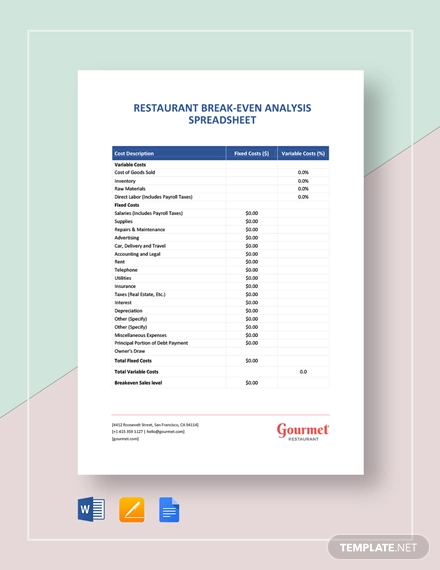
Simple Brand Analysis

Sample Regression Analysis
Multiple Regression
Linear Analysis
Multivariate Regression
Simple Effects Analysis
Failure Modes & Effect
What is an analysis and how does it work?
Analysis is defined as an elaborate review of components or factors of an object or entity for commentary and/or understanding. Applications vary largely from chemical, economics, engineering, linguistics, literature, math, music, and business.
The result from a proper or formal analysis or assessment are used in particular for strategic plans, marketing plans, action plans, implementation plans, and all other sorts of plans which prevent if not take away the risks involved for that business or venture.
What should be done in a dynamic analysis?
Dynamic analysis, as the name implies, aims to test and assess programs working in real time. Unlike traditional code reviews, dynamic analysis examines errors during the execution of a program. Static analysis on the other hand, is the repeated review of a program or code without having to run the code in simulated or real-time operation.
The incremental dynamic risk analysis example shown on the page describes the assessment of a program running load tests or structural performance tests. This program determines the risks involved regarding structural components being subjected to different loads and the impacts of such loads to the structure which help designers come up with designs that support results of such assessments.
Simple Business Analysis
Quantitative Analysis
Independent Business
Mastering Business Sample
Simple Cash Flow Analysis
Discounted Cash Flow
Cash Flow Ratio Sample
Correlation Analysis Example
Sample Dimensional Analysis
Tips in Writing a Good Analysis
- Identify hazards or anything that may cause harm. A good analysis aims to pin point the exact risks in your workplace or any and all points of risk. A good example of such is the job hazard example sample found in this page. It lists all possible sources of hazards or risks associated to each step of the work being done.
- Determine who will be harmed and how. It is important to be able to know what the hazard is going to do and who will be affected. This would in turn establish responsibility in terms of owning the prevention method for the risk later on in the action plan or implementation plan.
- Assess the risks and take action. In estimating the impact or gravity of the risk, you learn the priority in addressing such risks and what particular actions to make and include in your next strategic or marketing plans. The functional job analysis example in PDF found in the page show or explain the responsibilities and risks involved in doing the job function.
- Make a record of the significant findings. Doing so provides proof of an assessment being carried out and actual basis of review later on. The example post incident analysis found in the page shows or describes the incident that happened and can be used later on as basis for execution of any applicable punishment or disciplinary action towards responsible individual.
- Regularly review the risk assessment. This would ensure the continued practice of the preventive measures agreed to be taken to avoid risk and also serve to update any method found ineffective in lieu of a new measure or method in preventing such risks. Free analysis examples that feature this step can be found all over this page. Just click on the download link below the sample to gain access to the file.
Simple Financial Analysis
Financial Statement Example
Simple Fundamental Analysis
Mastering Fundamental
Fundamental Analysis of Companies
Simple Impact Analysis
Regulatory Impact
Economic Analysis
Business Impact Sample
Simple Incremental Analysis
Incremental Dynamic Sample
Incremental Cash Flow
Simple Incident Analysis
Critical Incident Sample
Time Series Analysis
Post Incident Analysis
Simple Job Analysis
Functional Job
Job Hazard Example
Simple Market Analysis
Apartment Market
Trend Analysis
Statistical Analysis
Statistical Analysis is the handling, interpretation and presentation of quantitative data. It includes the descriptive and inferential methods of analyzing data.
- The descriptive method mainly focuses on average for data gathered and the use of the deviations for such data.
- The inferential method, on the other hand, collects a sample data from different groups or points. That data is then used to infer any possible outcome.
The business impact analysis example shown in the page shows the different advantages as well as disadvantages from following a certain action in relation to the possible consequences of that action. It is a particularly useful tool in decisions relating to your business or organization.
Business Analysis
Analysing business needs and the determination of solutions to business needs is the main force driving the research discipline of business analysis. Solutions consist of either system development, process improvement, organizational changes, strategic plans, or procedural development.
Usage depends on the areas determined to be in need of such solutions. It may either be from processes involved in the business, the individuals that make the organisation itself, or from the systems used in running the business. All of which are then implemented or included in the business plan, strategic plans, action plans, or work plans for the business.
Simple Needs Analysis
Training Needs
Learning Factor
Market Sample
Simple Qualitative Analysis
Qualitative Data
Qualitative Content
Simple Quantitative Analysis
Quantitative Chemical Sample
Quantitative Business
Quantitative Data Analysis
Simple Swot Analysis
Business SWOT
Personal SWOT Analysis
Sample SWOT Example
Simple Statistical Analysis
Statistical Data Sample
Descriptive Statistical
Simple Variance Analysis
Mean Variance Sample
What is the Purpose of an Analysis?
In general, analysis serves the purpose of discovering and understanding any form of data or fact to aid in finding solutions to issues and problems arising out of such data and in making decisions in relation to the data analyzed.
In terms of business, any form of analysis made or conducted in reference to the related business provide managers and business owners more insight in making decisions in light of the business and other applications to such assessment.
Financial statement analysis for example, make use of the analysis of the accounts and economic prospects of the firm. The simple cash F=flow example in work shown in the page is an example of a financial statement.
Market analysis elements involves suppliers, customers, and the determined price by the interaction of supply and demand. The apartment market analysis sample shown in the page shows such an assessment.
Different other types of analysis exist that aim to provide help and better understanding of a subject, entity or business. This, in turn, provides material support for managers in their project proposals, strategic plans and business owners in their decision making process. The effective use of such assessments result in completion or success in any undertaking a person or business entity may decide to take.



